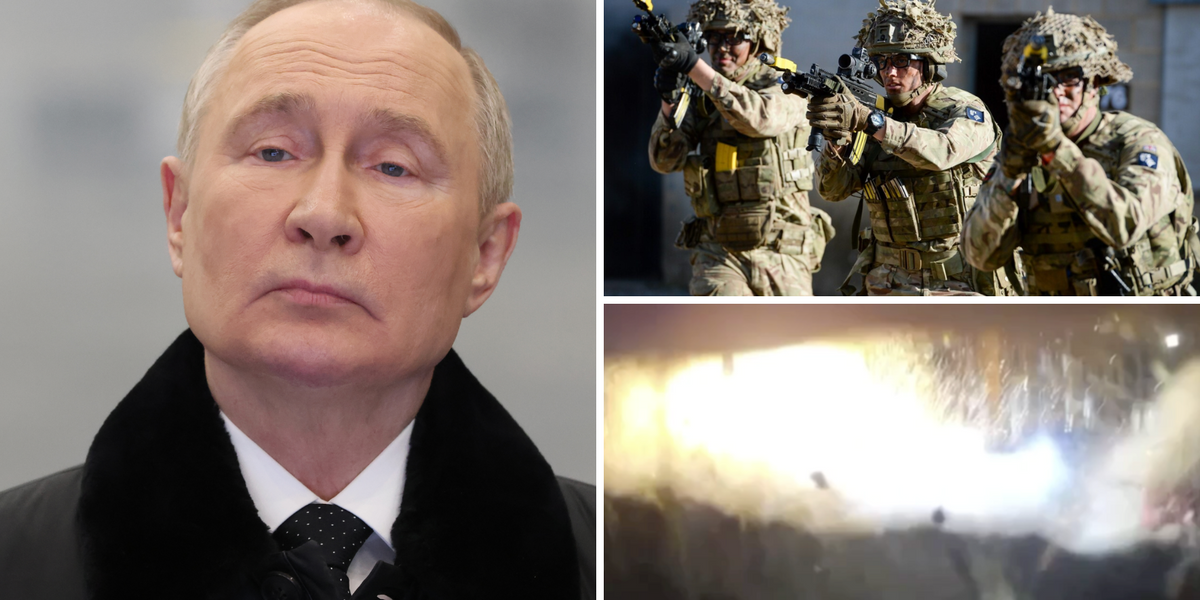Fitness
How the British Army lost its way

“There’s so much wokery and mixed messaging,” says one former Marines officer. And, while these campaigns may have been successful in attracting those who might not otherwise have thought of a career in the military, the problem is that they have ignored what has always been the Army’s traditional recruiting base: white, working-class boys (and girls) between 16 and 24 who want, as one Army officer puts it, “drama, danger, excitement, reasonable pay and a fight”.
These campaigns, he says, “don’t show tanks or anything blowing up. But my bit of the Army is there to fight and kill the enemy – and we’re not very good at telling people that’s our job.”
‘Armies are not easy to create’
So what now? Europe is teetering on the brink of all-out war. If it breaks out, Britain would have to step up to fulfil its Nato commitment. So do we really need the citizen armies that Gen Sir Patrick Sanders alluded to last week? And what about the kit they would have to fight with?
“If the Government wants to make the Army as effective as it could be, it requires total governmental and political support, sustained investment, and a sense of urgency to do things quickly,” says former brigadier Ben Barry, a land warfare expert at the International Institute for Strategic Studies. He outlines three main priorities: accelerating recruiting, a return to fully collective, large-scale training and a renewed focus on the logistics of weapons procurement. People, says Barry, are key – and, he says, “to be brutally frank, if you want sustained readiness, the high priority has to be the regular Army” – not the Reserves. (It’s sobering to remember that in the first six months of fighting in Ukraine, the Russians took the same number of casualties as the headcount of the entire British Army.) That means improving the offer to attract and keep the good people, from implementing pay review recommendations, to retention bonuses for those serving, to a massive improvement in the standard of living accommodation. “We have to make a better offer to those who might be wanting to join,” agrees Lord Dannatt – and get front-line soldiers back into recruiting offices to attract the brightest and best.
That’s not to say there isn’t a role for reservists, who might also be bolstered by a larger, better and more engaged regular force. Should we introduce some form of national service – that citizen army that Gen Sanders referred to – in the manner of our European counterparts in Sweden, Finland and Norway? Difficult, when military life has become so segregated from its civilian counterpart. As Richard Munday wrote to The Telegraph recently, even “organisations like the National Rifle Association, and events like the King’s Prize at Bisley, are ghosts of their former selves because their objectives have been countered by political decisions that have sought to segregate the military from civilian life, and sporting skill and interest. If we are serious about the need to maintain a credible Armed Forces in the future, we must bridge that divide.”
“Armies are not easy to create”, points out Maj Gen Chip Chapman, a former paratrooper and senior British military adviser. “You need motivated people who will join because they see it as vital for the UK’s interest. The worst thing you could have is people being coerced to join.” Instead, says the Army officer with recruitment experience, “more effort needs to be made to get people who have previously served back in [as reservists] – because it’s experience we’re lacking now.” Another suggestion is for all fit and willing former regular soldiers, numbering some 200,000, to be invited to take part in annual military exercises.
Next is kit, which Britain is woefully lacking: we’re low on guns, we’re low on the ammunition to shoot them, we’re low on tanks and the two aircraft carriers on which the majority of the defence equipment budget was blown in recent years are undeployable as Britain doesn’t have enough sailors to man them. We’re also majorly lacking in layered air defence – the ability to fight off attacks at both short, mid and long range. Recent suggestions that the carrier HMS Elizabeth could be deployed to fight off Houthi attacks in the Red Sea ignores the fact that we are lacking the jets to put on them that would provide the long-range cover.









